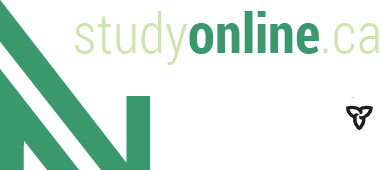Autism and Behavioural Sciences
Description
Students develop an understanding of current theories and treatment methodologies used to treat Autism Spectrum Disorder (ASD), and incorporate modified practices and procedures appropriate to the child and the situation. Emphasis is placed on the design and implementation of effective behavioural treatment plans according to the principles of Applied Behaviour Analysis (ABA) and Intensive Behaviour Intervention (IBI). The curriculum covers the range of evidence-based practices in autism treatment, the characteristics of ASD, as well as child development and augmentative communication systems. This provides students with the expertise in the field of autism and behavioural science for application within the autism and children's service sector. Theories, terminology, and applications to current approaches to teamwork and working with families of children with ASD are presented.
Autism and Behavioural Sciences admission requirements
College diploma, or university degree, with a specialty in Behavioural Science, Sociology Child Studies, Education, Psychology or Rehabilitation or similar discipline.
Criminal Reference/Vulnerable Sector Check
College diploma, or university degree, with a specialty in Behavioural Science, Sociology Child Studies, Education, Psychology or Rehabilitation or similar discipline.
Criminal Reference/Vulnerable Sector Check
Placement agencies require an up-to-date clear criminal reference check and vulnerable sector check prior to going out on placement. Students should obtain their criminal reference three months prior to placement; checks conducted earlier may not be considered current. As some jurisdictions require longer lead-time for processing, please check with the program coordinator to ensure you allow for sufficient turn-around time. It is the student’s responsibility to provide the completed document prior to placement start.
NOTE: A record of criminal offences, for which a pardon has not been granted, may prevent students from completing their placements, thereby affecting their ability to graduate.
Additional information
Students are required to provide evidence of approved certification in Non-Violent Crisis Prevention/Intervention (TCI or NVCPI) and Possession of a Standard First Aid and (HCP) (either St. John Ambulance or Canadian Red Cross or equivalent) as a prerequisite to the Field Placement component of this program.
Courses
BESC 1010 Behavioural Skill Building
BESC 1001 Introduction to Autism Spectrum Disorder
BESC 1002 Specialized Instructional Strategies
BECS 1003 Working with Families and Teams
ETHS 1000 Ethics and Professionalism
BESC 1004 Field Placement 1
BESC 1010 Behavioural Skill Building
BESC 1006 Parent and Staff Training
BECSC 1007 Transition Planning and Implementation
BESC 1008 Treating Challenging Behaviours
BESC 1009 Field Placement 2
Note: Check with the institution regarding start/end dates, prices, and delivery method. These may vary according to program, section, and/or semester.
Related Courses
Overview

- Institution: Georgian College
- Program type: Graduate Certificate
- Language: English
- Program Code: ATBS
- Delivery Method: Fully Online/Distance
Disclaimer:
Check with the institution regarding start/end dates, prices, and delivery method. These may vary according to program, section, and/or semester.
Check with the institution regarding start/end dates, prices, and delivery method. These may vary according to program, section, and/or semester.
